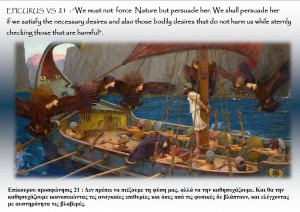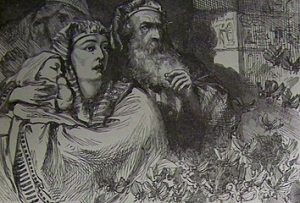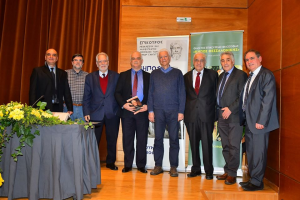What follows is the first part of my book review of Lucretius II: An Ethics of Motion, which is the second part of a trilogy. My review of the first book, Ontology of Motion, is here.
I must first clarify that my review of this book does not imply an endorsement of its ideas or methods. Ethics of Motion is, by its own admission, a deeply anti-Epicurean book. I would not recommend the book to people who are looking to use philosophy–as Epicurus advises–to live pleasantly and to create a happy life.
Prior to addressing the book review, there are some issues related to ataraxia that must be evaluated.
“Epicurus’ fetish of rational thought”?
Nail says that Epicurus is a “rationalist”, an “ascetic”, even an idealist. In page 176, he speaks of Epicurean “rationalism” and “fundamentalism”. In page 94, he argues that Epicurus advocated for a “purely MENTAL state of contemplation”, and in pages 8-9 he says that Lucretius argued against a “static ethics of Epicurean contemplation”–but fails to produce evidence or clear argumentation.
In page 198, he argues against “Epicurus’ fetish of rational thought”, for reason of which he says that Epicurus “lacks a genuine practical ethics” because Epicurus can’t imagine ethics or knowledge without conscious contemplation.
Concerning Epicurean so-called “rationalism”, Norman DeWitt’s book Epicurus & His Philosophy has an entire chapter on Epicurus’ “dethronement of reason” in favor of pleasure. Feeling (pleasure-pain) is a criterion within the Epicurean canon, which is the ultimate authority in Epicurean epistemology. Reason is not in the canon.
Furthermore, Nail argues that Lucretius is against ataraxia (page 3), while Epicurus is contemplative, and claims that the “goal” in Epicurus is not a life of pleasure but to attain ataraxia and “steer clear of dynamic pleasures”. No source is cited. Epicurus’ Letter to Menoeceus makes it clear that the goal of our choices and avoidances is pleasure–to it we must come back. It is our point of reference. There are no instructions to “steer clear of dynamic pleasures” anywhere in the Epicurean writings: Principal Doctrine 20 says that “the mind does NOT shun pleasure”, and PD 26 says that unnecessary desires generate no pain when neglected and are easily got rid of if they’re difficult to get or likely to produce harm. If they were easy to get and harmless, there would be no objection against them.
He seems to think ataraxia is “idealist” and purely static. Ataraxia means no-perturbations, and it’s a healthy and pleasant feeling. In Diogenes’ Wall, it’s described as dynamic emptying out of the mind from perturbations in order to make way for pleasures:
Let us first discuss states, keeping an eye on the point that, when the emotions which disturb the soul are removed, those which produce pleasure enter into it to take their place.
He also cites portions 83-84 of Laertius to argue that ataraxia is static. When one reads the Laertius portions cited, Epicurus is saying that the study of nature helps us to secure peace of mind.
[83] … those … who are not altogether entitled to rank as mature students can in silent fashion and as quick as thought run over the doctrines most important for their peace of mind.”
[84] … To aid your memory you ask me for a clear and concise statement respecting celestial phenomena; for what we have written on this subject elsewhere is, you tell me, hard to remember, although you have my books constantly with you. I was glad to receive your request and am full of pleasant expectations.
The term “full of pleasant expectations” does not sound static, although this may include pleasures derived from one’s disposition. A person who is full of pleasant expectations concerning a friend with whom he’s studying philosophy is full of desire to reconnect with his student, discuss the material being studied, answer all his questions and engage him in the study of nature. Clearly, Epicurus enjoyed the company of Pythocles–who was not an unquestioning pupil, if we are to judge by the admonitions given by Epicurus concerning Pythocles’ atheism. In addition to the intellectual challenges that an astute student worthy of such a long and personal letter would pose, there were social pleasures that Epicurus was looking forward to.
Pythocles was, to sum it up, Epicurus’ friend. This made their exchange no less than holy. Are the pleasures of having a friend ascetic, purely mental, idealist, or static? I would argue that they are both katastematic and kinetic. They involve the dispositions of gratitude and remembering past pleasures as well as anticipating future ones (as we see in the letter), as well as the pouring of wine, the conversations over meals, the meals themselves, the exchange of letters and the intellectual past-times involved.
Katastematic Pleasure is Soft Motion
For all these reasons, we must carry out a careful study of the meaning of ataraxia and static pleasures before moving forward with the book review. Nail claims that to Lucretius there are only kinetic sensations, whereas it was Epicurus that said nothing static in nature.
The atoms are in a continual state of motion. – Epicurus, Letter to Herodotus
Nail mentions that the gods are motionless, or are only ideas sprung from Epicurus’ mind, but if they are made of atoms, then they can not be motionless just like katastematic (static) pleasures can not be motionless. If they are ideas, then they are motions in the tissue of someone’s brain.
Nail accurately identifies idealism as an error, and he sees materialism as motion, life and reality whereas idealism corresponds to non-motion, death, static non-reality. But then he goes further by saying, in page 61,
“Trying to create stasis will ALWAYS end in empty, unnecessary suffering”.
In my years studying Epicurean philosophy and learning how ethical considerations are always contextual, I’ve learned to avoid categorical statements like this one. Nail reminds me a bit of Glenn Beck when he takes a word, links it to words that sound like it, and runs off into unempirical theories. Stasis sounds like state, and so stasis leads to statism, militarism, wealth disparity, and individualism. All stability equals, to him, authoritarianism.
In page 75, Nail says “there’s no ataraxia for Lucretius”, but Lucretius appears to translate ataraxia as tranquilitas in Latin, a word that he in fact uses. He also says “there’s no ataraxia, or static mind”, but ataraxia and static mind are not the same thing. Epicurus acknowledges that the mind is moving even when we sleep, if we are to judge from the closing words in his Letter to Menoeceus:
… never, either in waking or in dream, will you be disturbed …
In page 119, Nail says “there are no katastematic pleasures because pleasure is fundamentally kinetic like the rest of nature”. And so we’ve seen that, in general, the argument is that all bodies are in constant motion and, therefore, Nail reasons that static pleasures do not exist. But the pleasures of the mind and the static pleasures related to our stable dispositions do exist, are natural, and are therefore types of motion, and distinct from idealism.
What Epicurus Argued Concerning Static Pleasures
According to Diogenes Laertius, the view that only kinetic pleasures exist is a Cyrenaic doctrine, not an Epicurean one. Notice the mention of “freedom from disquietude” (ataraxia, in Greek) and “freedom from pain” (aponia) as categories of “states of pleasure”–by which he meant, FEELINGS.
[Epicurus] differs with the Cyrenaics about pleasure. For they do not admit that pleasure can exist as a state, but place it wholly in motion. He, however, admits both kinds to be pleasure, namely, that of the soul, and that of the body, as he says in his treatise on Choice and Avoidance; and also in his work on the Chief Good; and in the first book of his treatise on Lives, and in his Letter against the Mitylenian Philosophers. And in the same spirit, Diogenes … speaks thus. “But when pleasure is understood, I mean both that which exists in motion, and that which is a state . . . .” And Epicurus, in his treatise on Choice, speaks thus: “Now, freedom from disquietude, and freedom from pain, are states of pleasure; but joy and cheerfulness are beheld in motion and energy.”
For [the Cyrenaics] make out the pains of the body to be worse than those of the mind; accordingly, those who do wrong, are punished in the body. But [Epicurus] considers the pains of the soul the worst; for that the flesh is only sensible to present affliction, but the soul feels the past, the present, and the future. Therefore, in the same manner, he contends that the pleasures of the soul are greater than those of the body.
These arguments are elaborated in Principal Doctrine 20 and by Diogenes of Oenoanda, so I won’t delve into them further, except to note that there is a mind-over-matter logic at play, but that does not constitute a call for asceticism or purely static pleasures. PD 20 states that the (rational) mind, unlike the (unconscious) body, is able to discern the limits of our desires and secure a life of pleasure. Here are some of my final criticisms of the line of thinking taken by Neil and others:
- The either/or view of kinetic (dynamic) vs katastematic (abiding, or static) pleasures is, in my view, un-Epicurean. Both those who insist that Epicurus posited only kinetic pleasures and those who insist he called for only katastematic pleasures are in error because Epicurus invited us to constant pleasures. Life involves cycles of labor and rest, and one does not have enough energy and time to constantly enjoy active pleasures, yet Epicurus calls us to constant pleasures, and even promises that we are able to experience constant pleasures at the end of his Letter to Menoeceus.
- Epicurus could not have called for an ascetic or contemplative life of only static or mental pleasures because, according to his doctrine, with many kinetic pleasures, nature doesn’t give us a choice. For instance, we do not have a choice to not eat, which is a kinetic pleasure. Therefore, even if we incorporate a science and practice of contemplation into our hedonic regimen to some extent, it’s impossible to live a life of only katastematic, or static/abiding, pleasures.
- While it is true (as we see in Nail) that some enemies of Epicurus have used katastematic pleasures to argue against Epicurean doctrines, it is wrong to dismiss them when, as we see in PD 20, stable or attitudinal pleasures are an important part of our ethics and are central to our theory of character development and to the cultivation of stable, habitual pleasure.
- We find a focus on dispositions (diathesis) or attitudes in Epicureans like Philodemus (who related them to our good and bad habits) and Diogenes (who argued that we are in control of our dispositions). There seems to have been an ongoing tradition related to how a philosopher of pleasure must cultivate habitual pleasant states. In Philodemus, we learn that these dispositions are supported by true beliefs that are based on nature, while empty beliefs support unwholesome dispositions and bad habits. Epicurus declared war on these bad attitudes in Vatican Saying 46.
- Diogenes Laertius cites by name at least four sources by Epicurus (see above), which tells us that Epicurus was emphatic in repeating the doctrine that both kinds of pleasures exist. We may interpret this as his attempt to rectify what he perceived as an error in Cyrenaic doctrine, whereas his own doctrine was meant to help us secure “the best life” (sometimes translated as “the complete life”, see PD 20).
- Sentience occurs in two varieties: pains and pleasures. Ataraxia is a pleasant feeling of non-perturbation and satisfaction. It’s not idealist, or ascetic, or merely rational–even if it entails, like all emotions, a cognitive component. It’s a feeling, and it involves movement, even if soft or gentle. Ataraxia is not “static mind” (the mind is never static for as long as we’re alive), and it’s not necessarily contemplative. It means “no perturbations”, and arises when we banish all false beliefs and anxieties.
- Vatican Saying 11 teaches that “For most people, to be quiet is to be numb and to be active is to be frenzied.” This seems to be an argument in favor of cultivating both static and active pleasant states, of training ourselves to enjoy both attitudinal and dynamic pleasures.
Further Reading:
Lucretius II: An Ethics of Motion







